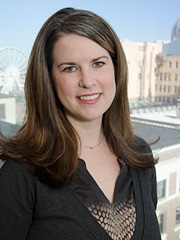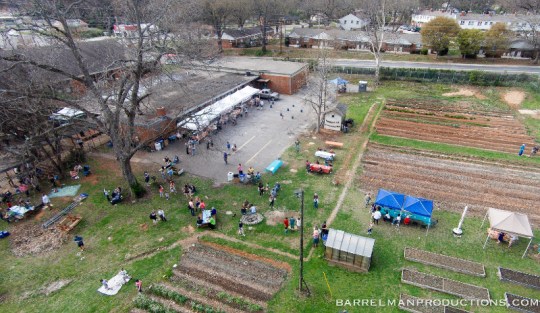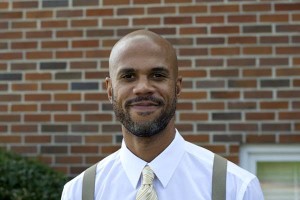Two Athens hospitals are sitting on a federally mandated report they commissioned early this year, and people who run safety net clinics and social service agencies are anxiously awaiting the results.
Ten months have passed since St. Mary’s Health Care System and Athens Regional Medical Center commissioned the Community Health Needs Assessment, which cost $30,000 to produce, is 204 pages long and adorned with colorful charts and graphs.
Hospital executives received the report in early September but have not signed off on it or made any statement about its contents. Officially, it is still in the review stage.
Elaine Cook, Athens Regional’s vice president of public and governmental affairs, says the report will be released Dec. 1.
Meanwhile, leaders of local clinics and social services are wondering what the hold-up might be.
Georgia Health News has obtained a copy of the report in its current, unofficial form. What it says about racial and economic health disparities in northeast Georgia is not particularly surprising, with familiar maladies such as asthma, hypertension and diabetes taking a disproportionate toll on African-Americans. But the contents also raise questions about data that were collected but not analyzed.
No one knows what actions, if any, the hospitals will take in response to the study.
“It’s sensitive because once this thing gets made public, then there’s a level of expectation that gets placed upon the hospitals,” said Fenwick Broyard, head of the nonprofit organization hired to compile the study. “It becomes the question: ‘So now that you have all this data, what are you going to do?’”
When the Affordable Care Act, also known as Obamacare, began going into effect in 2010, it placed new demands on nonprofit hospitals, which have tax-exempt status in return for providing charitable services to their communities. The ACA requires these hospitals to conduct community needs assessments and use the results to devise action plans for financial assistance.
The goal is to ensure that the free care provided by the hospitals matches what their communities actually need. Wanting to avoid penalties for not reporting, Georgia’s 82 nonprofit hospitals — including the two in Athens — rushed to complete their assessments and implementation plans in 2012 and 2013. This latest report is an update and a refinement of their earlier ones.
Competitors become partners
St. Mary’s and Athens Regional compete for business in the health care hub of northeast Georgia, drawing patients from 17 counties. Considering the ground the two hospitals needed to cover in complying with the ACA, there was bound to be trial and error.
For the first round of the assessments, the two Athens hospitals filed separate studies, each fairly short. But in November 2014, they decided to combine resources and tackle the second assessment together, producing a much longer document.
“A lot of hospitals will do needs assessment independent from each other, even though they are serving the same geographic area,” says health care consumer advocate Beth Stephens. “And that’s a wasted opportunity. You want to see hospitals planning together how they are going to address the community.”
Stephens leads the health access program for Georgia Watch, a consumer advocacy organization. When her group analyzed community assessments and action plans filed by all Georgia’s nonprofit hospitals, they found the reports ranged from a relatively light 50 pages to comprehensive, 200-page tomes.
For this latest needs assessment, St. Mary’s and Athens Regional contracted with another agency that serves all but four of the counties they need to cover in their assessment and action plan.
Community Connection runs the 2-1-1 hotline for Athens and surrounding counties. It’s the place people call when they lose a job and get evicted, lose a home in a fire, or suffer catastrophic health problems. The organization refers people in trouble to dozens of churches, safety net clinics, social service agencies and other nonprofits that can help.
For the past several years, Community Connection has been led by Broyard, a New Orleans transplant with degrees in social work and public health. He’s the one who approached the hospitals and proposed that his agency carry out the community assessment. The price was $30,000.
“I saw us being a value to them because we talk to the most vulnerable people on a daily basis. We have a bird’s-eye view on what’s going on everywhere,” Broyard said. “So they paid us to produce their need assessment.”
A daunting job of research
Federal regulations say that assessments must include two types of information: Primary data collected from the people who rely most on the hospitals, and secondary data, meaning county-level summaries of demographic and health information for the hospital’s service area.
Having never done such a project before, Broyard and his staff pored over assessments done by hospitals elsewhere, looking for models to emulate.
The best ones, it seemed, surveyed large numbers of residents about health needs and included in-depth interviews with leaders of agencies working with underserved groups. Unfortunately, no such information existed for Athens-Clarke County and the surrounding area.
Broyard’s team began setting up interviews with key program administrators in the nine counties where most consumers of charity care live, as well as focus groups for people who use the hospitals.
But what to do about Athens-Clarke County, where the largest number of free-care consumers live?
Broyard had a novel idea: The team would hold four old-fashioned pig roasts — events where people would gather to consume a whole porker roasted overnight, along with all the sides and maybe some music. They would get local organizations, such as the Northeast Georgia Food Bank, to sponsor the pig roasts and stage them in locations near public housing and low-income neighborhoods.
Pig roast participants would not be charged money for admission, but instead would have to complete a survey that Broyard’s team had designed for the community health assessment.
This sounded like a great plan, but from an information point of view, the pig roasts didn’t pan out.
With two roasts down and two to go, analysts found that the number of completed surveys was far below what Community Connection had hoped for.
“The pig roasts were great and we had a lot of people there, but what we discovered was the low-income minority population was not represented,” Broyard said. And many people were not filling out everything on the 45-question survey.
Trimming the questionnaire
All those question entries left blank on the pig roast forms gave researchers food for thought.
“There were a lot of questions that weren’t relevant for our purposes and for the hospitals needs assessment,” Broyard said. His team had included them simply because University of Georgia researchers and local service providers were interested in the answers for their own reasons.
“There are only so many questions you can reasonably expect people to answer,” said Grace Bagwell-Adams, an assistant professor of health policy and management at the University of Georgia. After the assessment was under way, she volunteered to analyze survey results.
Broyard took another look at the survey and cut 21 questions. The researchers rethought the pig roast idea as well, and decided to stage a huge fireworks display on Independence Day in a different part of Athens.
After this, they had just over 2,000 surveys and only two months left to finish the assessment. It was cram time.
“We had such a specific deadline,” Bagwell-Adams said. “We included the most important questions.”
The bulk of the report draws on secondary data compiled by the federal and state agencies that publish county-level health information online. Some information in the report appears to come from the streamlined survey that some local residents completed in July.
Not included is an analysis of data from survey questions that interested local service providers and researchers at the outset, but which were later dropped to speed up the process.
“We are still assessing out how and what to do with the extra data because it was just too much information,” Bagwell-Adams said. “All that data will eventually be available to community members.”
Trina Von Waldner, who leads a coalition of local service providers called the Athens Health Network, looks forward to the hospitals’ release of the report, along with their implementation plans. Von Waldner, a professor at UGA’s College of Pharmacy, wants to see not only what the hospitals are going to do with the information they have, but also what the data say about the community.
“I would like to get an up-to-date snapshot of people that are uninsured and underinsured in Athens-Clarke County and the age groups of those people,” she said. Having this information will help Athens Health Network members, which include the safety net clinics, know what programs are essential and how to target funding efforts.
Looking to the deadline
Although Broyard and the Community Connection team met their Sept. 1 deadline for giving their report to hospital administrators, the hospitals say they still need to review the assessment, make their own changes and come up with an implementation strategy.
“It’s about how hospitals will use their own resources to address prioritized needs as a community,” said Stephens, the Georgia Watch expert. “Those decisions are made internally by the hospital.”
[youtube]https://youtu.be/fl-ZNyQIohQ[/youtube]Athens Regional’s action plan and its edited version of the community assessment are due to the IRS this month.
St. Mary’s deadline is June 2016, so its leaders will have more time to come up with a strategy for improving charity care.
“That’s a lot of data to develop recommendations from,” Von Waldner said.
Once Athens Regional files with the IRS, federal regulations require that it post the community health needs assessment on its website.
Then the challenge of improving care for low-income people who need free care really begins.
“The hospital can only do so much,” Broyard said. “But what they do with the data and what the community does with the data is the most important part.”
Sydney Devine, from Valdosta, is currently a second-year graduate student in the Health and Medical Journalism program at the University of Georgia. She works as a research reporter for the university and is interested in health issues in low-income communities.





